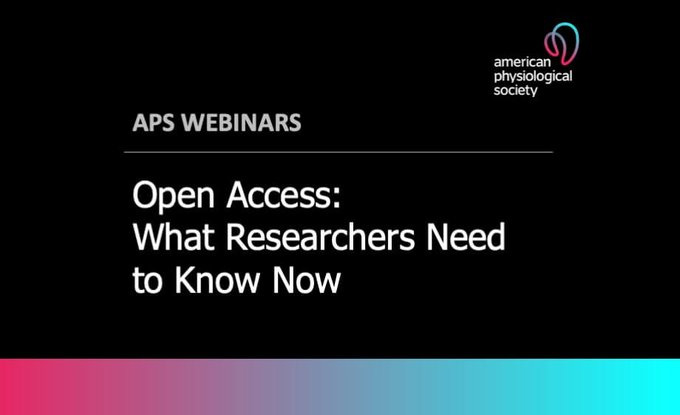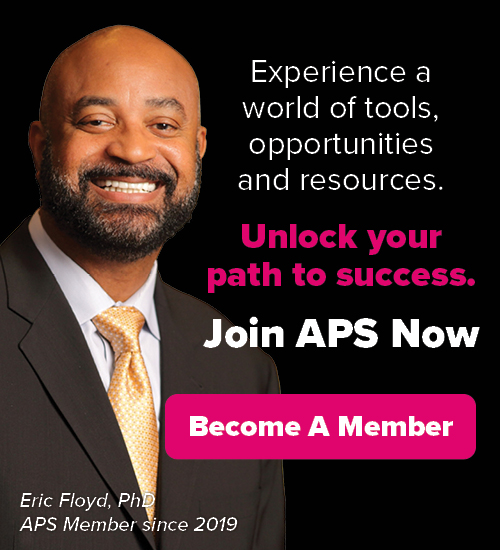- Membership & Community
-
Publications & News
- Physiology Journals
-
Newsroom
-
The Physiologist Magazine
- 2019
- 2020
- 2021
- 2022
- 2023
- 2024
- In Depth
-
Mentoring Forum
- Net Worth
- Take Care
- You … In Charge
- Work. It. Out.
- Working Off-site
- Location, Location, Location?
- Student Support
- Progressing to Postdoc
- Relationship Building
- Let’s Get It Started
- What Do We Value?
- It’s a Postdoc Life
- Coronavirus Contributions
- Creative Communications
- Selection Process
- Conference Connections
- Postdoc Appreciation
- Research Rewards
- Focus on Teaching
- Industry Insights
- Balance Beam
- Post Postdoc
- If You Build It
- Talk It Through
- Forward Bound
- I’ve Earned My PhD. Now What?
- University Life
- Tips for Trainees
- Time Travel
- Prepare Now for the Career You Want
- Landing a Postdoctoral Researcher Position
- Becoming a Physician-Scientist
- Mastering the Art of Science Communication
- Setting Yourself Up for Success in the Lab
- From Postdoc to Professor: Key Strategies for Success
-
Policy IQ
- Policy IQ—2023 in Review: How APS Advocated on Behalf of Physiologists
- Policy IQ—Supporting Equitable Research
- NIH's Road Map to a Better Postdoc Experience
- The Career Path to Science Advocacy
- Culture of Safety: Stopping Sexual Misconduct
- Physiologists Return to Capitol Hill
- Tips for Scientists to Communicate about Animal Research
- Science Advocacy in a New Political Landscape
-
Publish with Polish
- Publish with Polish
- The Layers of Open Science
- Take Your Content From Meeting to Manuscript
- APS Journals to Highlight Women’s Health Research
- What Subscribe to Open Means for APS Members
- The 5 Pillars of Publish with Purpose
- 3 Types of Metadata Researchers Should Know About
- Navigating Open Access and New Licensing Options
- Under the Microscope
- Mentoring Q&A
- Evolution
- Baseline by Scott Steen, CAE, FASAE
- 2025
- Find Us on Social Media
-
The Physiologist Magazine
-
Professional Development
-
Meetings & Events
-
American Physiology Summit
- #APS2024 Overview
- Abstracts
- Awards at the Summit
- Award Lectures
- Career Networking Lunch Form
- Dates and Deadlines
- Advocate for Health Research Funding
- Hotel Information
- Industry Partners
- Keynote Speaker—James Rothman, PhD
- Keynote Speaker—George Brooks, PhD, FAPS
- Keynote Speaker—Holly Ingraham, PhD
- Mobile App
- NIH and NSF Program Officer Panel Discussion Form
- Physical Poster Information
- PhysioHub
- Pre-Summit Events
- Registration
- Section & Group Banquet Tickets
- Social Events
- Speaker Audiovisual Instructions
- Summit FAQs
- Summit Newsroom
- Undergraduate Program Book
- Travel & Transportation
- Liability Waiver
- Industry Partners
- Martin Frank Diversity Travel Award Orientation Agenda
- Martin Frank Diversity Travel Award Networking Luncheon Agenda
- Women in Physiology Networking Event Agenda
-
2023
- APS 2023 Call for Proposals
- Shocklogic Test
- Team 2023 Task Force
- Shaping the Summit
- Schedule at a Glance
- Pre-Summit Events
- Pre-Summit Center for Physiology Education Workshop Registration
- Section & Groups Banquet Tickets
- Pre-Summit Center for Physiology Education Workshop
- Press Registration
- Meet the Organizers
- Keynote Speaker—Terrie Williams, PhD
- Keynote Speaker—David Julius, PhD
- Industry Workshop Information
- Important Dates and Deadlines
- Hotel Information
- Distinguished Lecturers
- Building APS 2023
- Awards at the Summit
- American Physiology Summit Program
- 2024
- Scientific Integrity Policy
- 2026 American Physiology Summit
- Joseph Erlanger: Pioneering Nerve Research and APS Leadership
- From Concept to Classroom
- New Trends in Sex Differences and Women’s Health Research
- Webinars
- Related Meetings
- Future APS Conferences
- Conference Policies
-
American Physiology Summit
- APS Awards
-
Career & Professional Development
-
Career Gateway
-
Resources
- Transcript—Leading Through Conflict and Difficult Conversations
- Transcript—Managing Conflict with Colleagues
- Transcript—Leading a Team Through Conflict
- Transcript—Providing Difficult Feedback
- Transcript—Team Dynamics and Culture Primer
- Transcript—Building a Team
- Transcript—Leading a Team Assigned to You
- Transcript—Creating a Team Culture
-
Resources
- Career Navigator
- Center for Physiology Education
- Physiology Job Board
- APS Graduate Physiology & Biomedical Science Catalog
-
Career Gateway
-
Meetings & Events
-
Advocacy & Resources
- Policy Areas
-
Resources
- Researcher Resources
- Educator Resources
- Trainee Resources
- Student Resources
-
APS Graduate Physiology & Biomedical Science Catalog
- Des Moines University
- East Tennessee State University
- George Washington University
- Mayo Clinic Graduate School of Biomedical Sciences—Biomedical Engineering & Physiology
- Michigan State University
- New York Medical College
- Nova Southeastern University
- Pennsylvania State University
- Texas A&M University
- Texas A&M University Medical Physiology
- Stony Brook University
- The University of Iowa
- University of Alabama at Birmingham
- University at Buffalo
- University of Colorado
- University of Michigan
- University of Minnesota
- University of Missouri-Biomedical Sciences
- University of Nebraska Medical Center
- University of Nevada, Reno
- University of South Carolina School of Medicine
- University of Tennessee Health Science Center (UTHSC)
- University of Texas Health Science Center
- Virginia Commonwealth University
- Wayne State University
- Physiology Department Catalog Submission Form
- Boston University
- Women's Health Research Initiative
- Career Gateway
- Diversity, Equity & Inclusion
- Advocate for Science
- About APS
 March 4, 2020
March 4, 2020
11 a.m. – 12 p.m. EST
The American Physiological Society (APS) held an interactive webinar on March 4, 2020, to discuss open access (OA) for scientists engaged in physiological research.
Register to access the recorded webinar.
Researchers, including published authors and APS members, understand that rapid and widespread dissemination of physiological research can advance the field. OA publishing is frequently mentioned as a path toward this future, but what does this mean for researchers?
This webinar will take a deep dive into OA from the perspective of the scientist. The session will start with an OA primer that outlines types, definitions and factors that drive funding and innovative business models. Scientists that have published extensively in OA models will share how they handle related fees from their grants and budgets.
Speakers:
Lisa Janicke Hinchliffe, MS; Professor for Information Literacy Services and Instruction, University of Illinois at Urbana-Champaign.
Dennis Brown, PhD, FAPS; APS Chief Science Officer, Professor of Medicine at Harvard Medical School, Director of the Massachusetts General Hospital (MGH) Program in Membrane Biology.
Agenda
Intro to OA for Researchers
Lisa Janicke Hinchliffe
- OA Typology-Gold, Green, Bronze, Hybrid and others
- OA Benefits for Authors-Readership, Copyright and Reuse
- Questions & Answers/Engagement Poll
Who Covers the Cost of OA Publishing: Author, Funder or Institution?
- Types of Publishing Costs – Submission Fees, Color and Page Fees, Publication Fees, Open Access Article Processing Charges (APCs)
- What Are Transformative Agreements? From “Read & Publish,” “Publish & Read,” “Subscribe to Open” to “Read, Publish & Join”: What are librarians talking about?
- Questions & Answers/Engagement Poll
A Researcher Perspective: Paying for OA from Your Grant and Budget
Dennis Brown
- Scenarios for paying for OA–Case examples from your colleagues about how they use their budgets and grants to pay for publishing research. We will be discussing (various) scenarios including Brown’s experience at MGH.
Case Examples will be provided from:
Patricia E. Molina, MD, PhD, LSUHSC New Orleans, LA; Ole Petersen, CBE, FRS, Cardiff University; Josephine C. Adams, Ph.D. University of Bristol, UK; René J.M. Bindels, PhD, Institute for Molecular Life Sciences, Nijmegen, the Netherlands, Alicia Schiller, Ph.D., University of Nebraska Medical Center.
APS & OA: What OA options are available to APS authors?
Closing Comments/Questions


